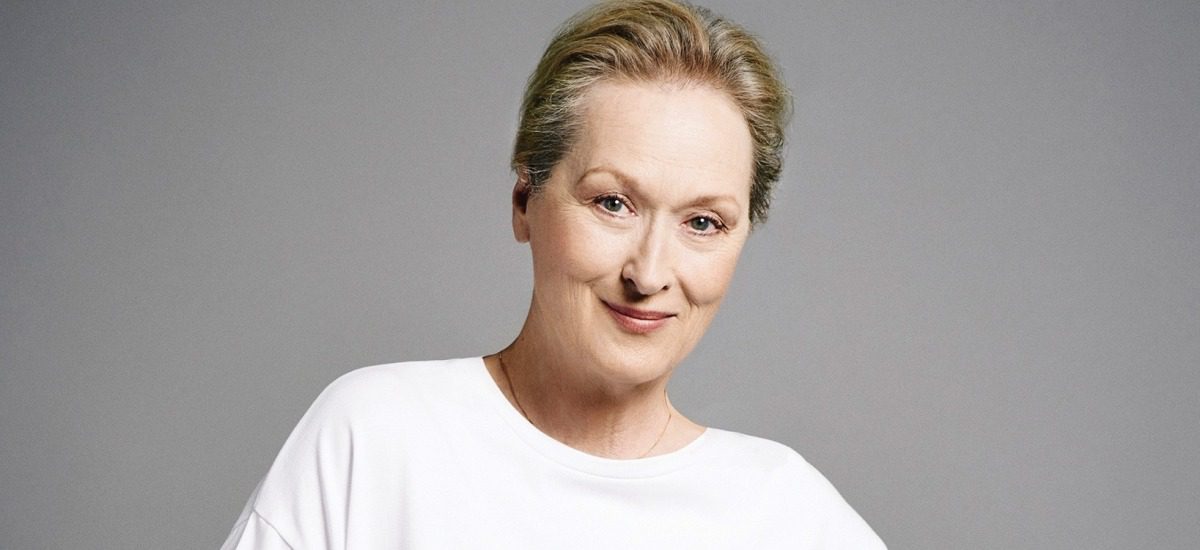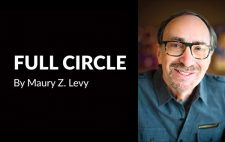The most remarkable thing about Meryl Streep is how unremarkable she really is. Take away the Academy Awards (three) and nominations (19 – more than any other actor or actress in history), the honorary degrees (one from Dartmouth, another from Harvard, a third from Princeton) and the Presidential Medal of Freedom, and she’s Mary Louise Streep from New Jersey.
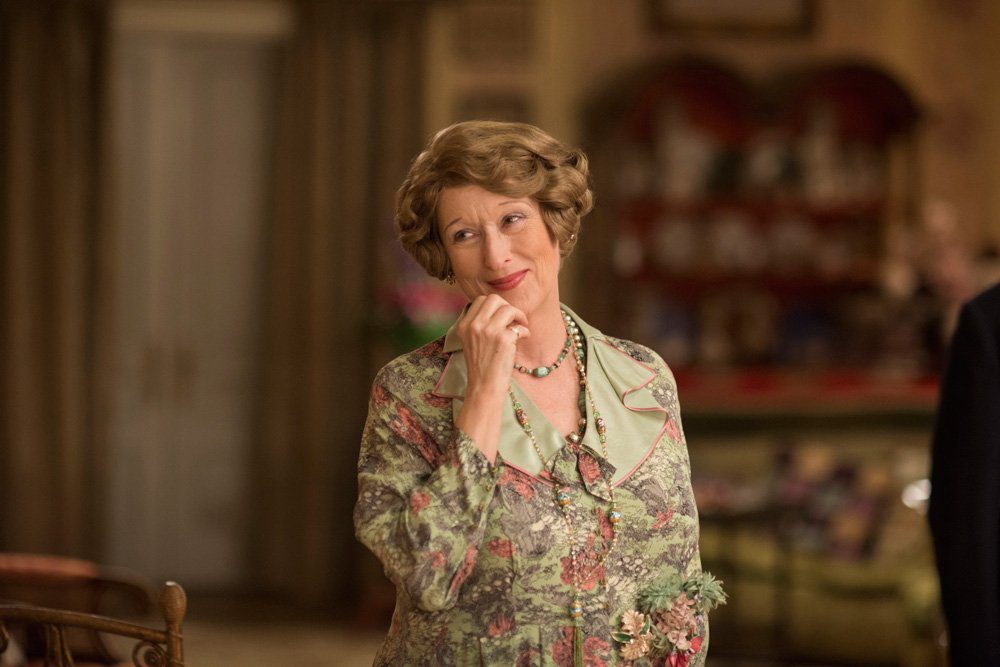
Meryl Streep plays a not-so-great opera singer in “Florence Foster Jenkins,” out this month
PHOTO COURTESY NICK WALL/PARAMOUNT PICTURES
But Meryl Streep is also a legend – the true definition of an A-List celebrity. Perhaps, even, the first name on the list. But in every appearance and conversation, be they public or private, she is, simply, unabashedly, herself. She laughs at her own jokes. She bursts into song. She is warm and genuine. Though over the years she has repeatedly called herself an introvert, she is fun to watch and even more fun to be around.
Nearly 50 years into her career, Streep still talks about her beginnings in New Jersey. She constantly speaks about her family, crediting her mother when interviewers ask how she got into acting.
“My mentor was my mother,” she says. “She said to me, ‘Meryl, you’re capable. You’re so great.’ She was saying, ‘You can do whatever you put your mind to. If you’re lazy, you’re not going to get it done. But if you put your mind to it, you can do anything.’ And I believed her.”
In many ways, the 67-year-old is today who she’s always been – the eldest of three children raised in a Presbyterian family in North Jersey, cheerleader and homecoming queen with a talent for mimicry and memorization that made her shine on the high school stage.
When she got to Vassar College in the late ’60s, things got serious. Her turns in on-campus productions earned her recognition and a place in Yale School of Drama’s MFA program. Her years at Vassar also mark the birth of the Meryl Streep we know today: the activist, philanthropist and brazen feminist.
“When I was in college and all the colleges were female or male, there was a big choice,” she remembers. “I was at Vassar, and we could join with Yale, but we’d have to go to their campus. There was never any question that the men would abandon New Haven, because going to a women’s college was a step down for them and going to a men’s college was a step up for women.”
From her earliest professional roles, Streep has played powerful female protagonists, sometimes empowered, sometimes facing a great struggle for recognition or survival, but always with a deep well of strength. She has often chosen roles to educate audiences about the hardships of those who are different from themselves. In a conversation with Jon Stewart, she noted her part in the 1978 miniseries “Holocaust,” a role that brought her wide public recognition and her first Emmy Award.
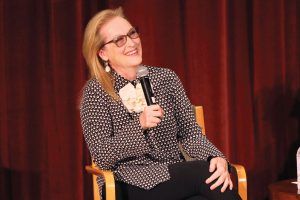
PHOTO COURTESY: DAVE ALLOCCA/STARPIX
“The things that go really deep are the things that work to our empathy,” she told Stewart. “To not just think about the indignities done to our own tribe, but to feel the indignities happening to someone else are also happening to us; that’s where art comes in. I remember the easy, almost effortless anti-Semitism of New Jersey, where we grew up. [Holocaust] made little in-roads, because when you’re allowed to feel, as a member of the audience, like it’s happening to you, it’s a powerful, meaningful thing.”
Streep says her desire and responsibility as an actress to create empathy in the audience extends beyond the race and religion of her characters. She also wants men to, at least in some sense, understand the women she’s portraying. It’s a tall order.
“From the time we’re little girls, we read literature and history, and it’s all about boys, most of it,” she says. “But I feel more like Peter Pan than Tinkerbell. I wanted to be Tom Sawyer, not Becky. And we’re so used to that act of empathizing with the protagonist of a male-driven plot. We’ve done it all our lives. But [men] have never had to do the other thing. The hardest thing for me as an actor is to have a story that makes men in the audience feel like they know what I feel like.”
After Yale, Streep spent two decades establishing herself as the First Lady of Hollywood, the dramatic actress capable of stepping into a character’s emotions like pulling on a second skin. She made hit after hit – “Kramer vs. Kramer,” “Sophie’s Choice,” “Out of Africa,” “The Bridges of Madison County,” “Marvin’s Room” – and the awards and accolades kept rolling in.
Streep is that rarest of Hollywood rarities – the actress beloved by both the baby-boomer audiences who knew her as a young ingénue and by millennials who adored her as the terrifyingly imperious, sharp-tongued Miranda Priestly in 2006’s “The Devil Wears Prada.”
The rest of the 2000s saw Streep take on lighter roles, showing a looser, more joyful side in the Julia Child biopic “Julie and Julia,” the romantic comedy “It’s Complicated” and the movie-musical adaptation of “Mamma Mia!”
She also became more and more outspoken on feminist causes, becoming a regular attendee at global summits like Women in the World and taking on roles made even more demanding by the fact that the powerful women she was playing were real.
In 2010, she received rave reviews for the portrayal of British Prime Minister Margaret Thatcher in “The Iron Lady.” The year 2015 saw her as Emmeline Pankhurst, a leader of the British suffragette movement. That role in particular, she says, came with a great deal of personal significance.
“My grandmother had three children and still couldn’t vote – not in the school board election, nevermind for the president,” Streep says. “She didn’t care who was president, but she really cared about who was on the school board. And so it was personal to me. Yes, it’s 100 years ago, but as you get older, that seems like nothing.”
Progress does not happen, according to Streep, politely.
“In England, [the women’s suffrage movement] was violent,” she says. “After petitioning Parliament for 50 years, politely, nicely, doing it ‘the right way’ to get the vote, they finally realized it wasn’t going to happen, and they started blowing up the greens of all the best golf courses around London. That got their attention.”
In her most recent film, out this month, Streep plays yet another real-life woman with something to prove. Florence Foster Jenkins was an American socialite and amateur opera singer in the 1930s and ’40s who was ridiculed for her incredibly poor singing ability.
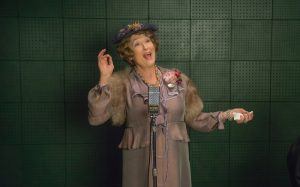 Streep faced several challenges in portraying Jenkins – one being she’d have to sing badly, despite her years of opera training and a singing voice that, as she’s demonstrated time and time again, is quite pleasant.
Streep faced several challenges in portraying Jenkins – one being she’d have to sing badly, despite her years of opera training and a singing voice that, as she’s demonstrated time and time again, is quite pleasant.
“At first I thought, ‘This will be a piece of cake,’ because I can’t really sing,” Streep laughs. “It was much more difficult, because first of all, she tackled the most difficult of arias – the canon of operatic diva performances. Just to sing as well as Florence Foster Jenkins was a challenge.”
Streep says the most difficult part of the role in “Florence Foster Jenkins,” though, was imbuing the character with dignity, even while she’s the butt of a joke she isn’t in on. Again, Streep found a very personal connection to her character.
“This was a little bit of a struggle to fight for Florence’s territory, for her soul,” Streep says. “Like a lot of people who love the arts, she just wanted to do it. She had the real, pure joy of the amateur, of doing something for the love of it and not for any other reason. She’s a person who has retained something we all have when we’re children. When you’re a kid and you can’t really do anything that well, nevertheless you hurl yourself into the imagining of it, and you take delight in just the doing.”
Florence Foster Jenkins represents the latest in a long line of Streep-portrayed women in a world where succeeding as a woman is difficult or unlikely. In real life, Streep rails against that notion. In April, her Women in the World Summit address was full of optimism for the next generation of women – a generation she hopes will have it easier than she did.
“For the seventh year, this is the place I’ve come to have my righteous anger ignited and put to use to fuel my optimism,” she told the crowd. “Somehow Women in the World does this every time. Women didn’t always used to be ‘in the world.’ For millennia, thousands of years, in most cultures, the voices of women did not resound in the halls of justice, or from the pulpit or the podium, or in Parliament, at senates, in court, or in the very important meetings of very important men, where the course of history was set.”
“So this has been a profound – if uneven – change, and it’s still taking place,” she continued. “You could make a case that, along with the technological revolution, the most provocative, upending, destabilizing, thrilling change in the course of human history is that we’re finally in it. There are people who are happy about this, and people who are not. But we are women who can help those who can’t. We who are in the room have to make room. We who are at the table have to set a place for others.”

